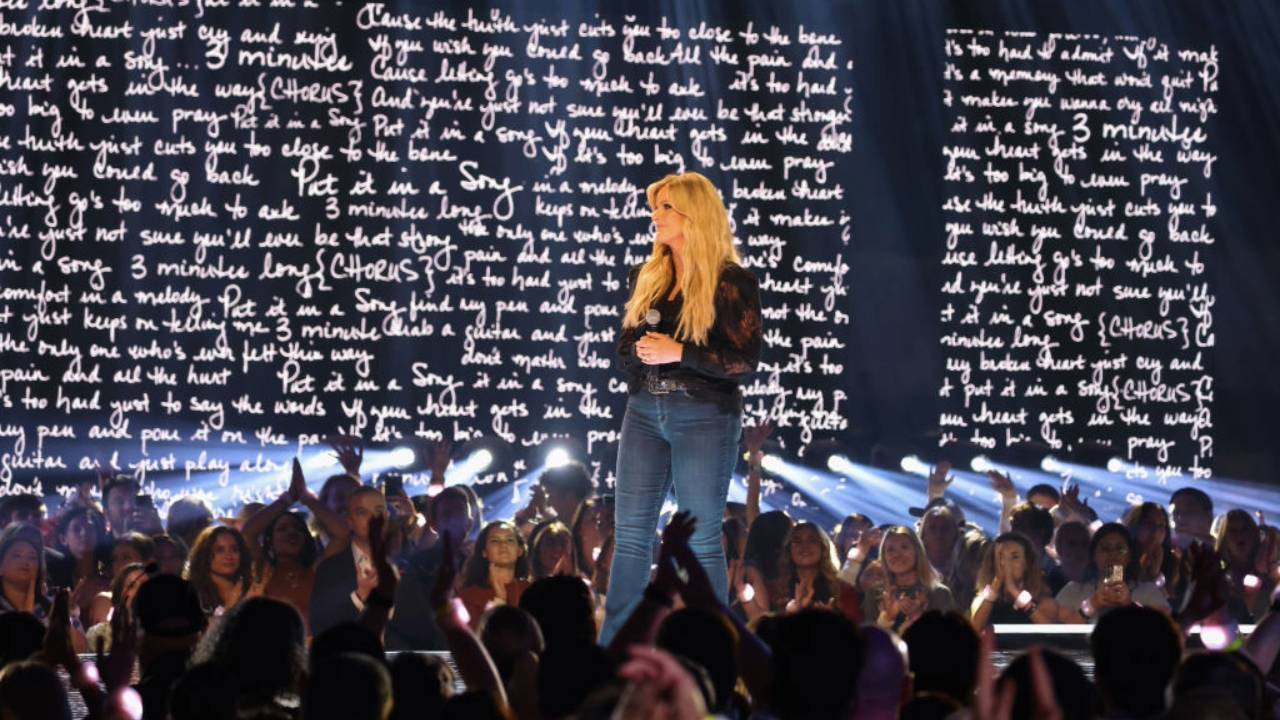The Avett Brothers Roll Up Their Sleeves for New Album

Although they've graduated from regional clubs to performing at major arenas throughout the nation, the one constant of the Avett Brothers' 10-year career has been hard work. Heading into the recording of their seventh full-length album, the North Carolina natives are putting in more sweat equity than ever to follow the success of 2009's I and Love and You.
"It might be because our dad just rolled up his sleeves a lot and was always dirty with welding burns and labor," explains singer-banjo player Scott Avett. "Maybe there's a bit of guilt for us having it too easy. So it has to be work for us."
In October, their efforts led to the Americana Music Association's duo/group of the year award, and at the time of this interview with CMT.com, they were preparing for a show at Nashville's Bridgestone Arena where legendary punk band Social Distortion would be opening.
A rare act that brings intensity as well as intellect to folk music, their last album, the moody I and Love and You, was loved by critics and fans alike. That set was helmed by Rick Rubin, a visionary producer who helped bands like the Red Hot Chili Peppers, the Beastie Boys and Run-D.M.C. reach their cross-genre potential. Rubin has returned to steer the upcoming project in the middle of what the Avetts call their "second era."
Backstage before their show, Scott Avett and singer-guitarist Seth Avett described what the new album will be like, how their spirit is most important to them and why they look to Bruce Springsteen and Willie Nelson for inspiration.
CMT: I was doing some research and found out you guys first played in Nashville at Layla's, a honky-tonk bar on Lower Broadway.
Seth: Yeah, doing three-hour sets. (laughs)
And now you're in the Bridgestone Arena, which is a much bigger venue.
Seth: It's amazing how it's basically right across the street. Physically, it's so close. But timeline, it's 10 years it took us to get across the street.
Since your music is acoustic-based, how did you go from Layla's to a 15,000-seat arena?
Seth: See, that's the thing. Luckily, we didn't go from Layla's to that. We went from Layla's to a ton of places in between. I think we would be lost if we tried to take that huge step without all the in-between. We try to make it sound as good as we can. We put a lot into that. But what's clearly the most important thing to us is the spirit of the thing. You're not really gonna see us spending hours and hours getting just the right sound for the banjo. We just go up there, get it working, and then we get out there and play a song for the people. We don't split hairs too much.
Can you tell me a little about the next album?
Seth: We're almost there with the music. Probably about 95 percent done with the actual recording of the songs. There are a few major differences between how we recorded I and Love and You versus this one. For this one, we demoed like 25 songs and then recorded 25 songs fully, all the way to the end. So now it's put us in an interesting position as far as what is the record. It is emerging, slowly but surely. We're very proud of it. We're very excited by it.
Working with Rick Rubin again, was there a difference this time?
Scott: There's definitely much more trust because we just didn't know each other as well then as we do now. This time, it was a much longer leash from us to him, and we got to do our thing a little more and let it breathe. And it's breathing a lot more than it was with I and Love and You.
Seth: And during I and Love and You, we were doing more than recording a record. We were attempting things with playing music that we hadn't done before. We spent all this time -- me and Scott and Bob [Crawford, the band's bassist] -- just doing it and doing it. Playing out of tune. Playing whatever tempo. We were just this one living organism, and what mattered to us was that we were bringing the spirit. So we weren't worried about consistent tempos. Screw that. We're gonna go into this place in the middle of West Virginia and just rock the house for three hours. So when it came to I and Love and You, we were sort of breaking some things down. With this record, there was no deconstruction. It was more like, we've got these songs, let's record them well. For that reason, it has a certain brightness that I and Love and You doesn't.
I think some people are hoping for an album with a lot of energetic songs. Will there be more of those?
Scott: I think there's some. There are definitely two, three, maybe four faces to this group of songs. And there's definitely a block of them that have energy. A couple with poppy energy. There's one with definitely aggressive energy and one with driving energy, but the chance that more than two or three of those make it on the album -- with 23 or 24 other songs to choose from -- is not likely.
Seth: But I've gotta say, I do feel that this record exemplifies that we are hitting some kind of a stride. I don't know exactly how to explain that, but where I and Love and You felt more like a rite of passage, in a way, this record definitely feels like we've kind of gassed up the vehicle and we're moving.
So if this is the beginning of a new era, where do you hope it takes you?
Seth: In the realm of the theoretical, performance-wise, it'd be nice to be where Springsteen is. His fans are very dedicated. His music and his presence matters very much to them, and they matter very much to him. So there's a great exchange between him and his fans. And the same with Willie Nelson. I think that would be a great thing to have in a couple of years, and I think we're on a track to do that. From where we are at this point, 10 years in, I think it resembles some of what they had going on early in their careers.
CMT Radio's Jean Williams contributed to this interview.





